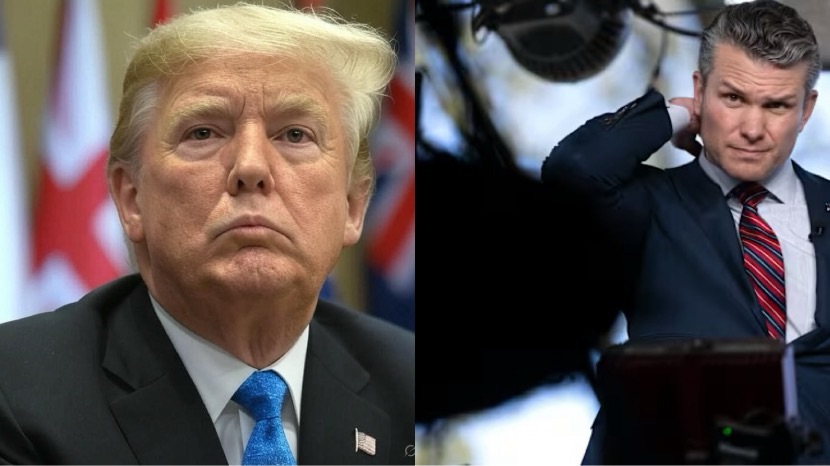NFL
Leaked Group Chat Sparks Widespread Alarm Among America’s Closest Allies: France, UK, Australia, Canada, and New Zealand Question Trust After Secret War Plans Surface

Global Allies in Shock: Leaked Group Chat Exposes Alleged U.S. War Attack Plans
March 26, 2025 – Washington, D.C.A bombshell revelation has sent shockwaves through the international community as a leaked group chat purportedly detailing U.S. war attack plans has surfaced, alarming some of America’s closest allies, including France, the United Kingdom, Canada, New Zealand, and Australia. The breach, which appears to have originated from a secure diplomatic communication channel, has sparked outrage, confusion, and urgent calls for clarification among leaders of the so-called “Five Eyes” intelligence alliance and beyond.

The leaked chat, first reported by an anonymous whistleblower to a European news outlet, allegedly contains discussions among high-ranking U.S. military and intelligence officials about potential preemptive strikes targeting unspecified adversaries. While the authenticity of the documents remains unverified, the mere suggestion of such plans has ignited a firestorm of diplomatic tension at a time when global stability is already under strain.
Allies React With Alarm
France, a key NATO partner, was among the first to respond. President Emmanuel Macron issued a stern statement from Paris, calling the leak “deeply troubling” and urging the U.S. to provide “immediate transparency” to its allies. “If true, this represents a breach of trust that undermines the very foundation of our collective security,” Macron said during a press conference.
Across the English Channel, UK Prime Minister Keir Starmer echoed similar sentiments, emphasizing the need for unity among Western nations. “The United Kingdom stands shoulder to shoulder with the United States, but we cannot ignore the implications of such revelations,” Starmer remarked. “We will seek answers through the appropriate channels.”
Canada, New Zealand, and Australia—members of the Five Eyes intelligence-sharing pact alongside the U.S. and UK—expressed a mix of disbelief and concern. Canadian Prime Minister Justin Trudeau called the leak “a serious matter that demands a serious response,” while New Zealand’s Prime Minister Christopher Luxon described it as “a potential fracture in the trust that binds our nations.” Australian Foreign Minister Penny Wong took a sharper tone, stating, “If these plans were made without consultation, it raises profound questions about the partnership we’ve built over decades.”
What the Leak Reveals
Details of the leaked group chat remain murky, with only fragments made public so far. According to sources familiar with the documents, the conversation includes references to “strategic contingencies” and “rapid deployment scenarios” in regions not explicitly named. Analysts speculate that the plans could relate to escalating tensions in Eastern Europe, the Middle East, or the Indo-Pacific—hotspots where U.S. military presence has been a topic of global scrutiny.
The chat reportedly features casual yet alarming exchanges, with one participant allegedly joking, “Guess it’s time to dust off the old playbook,” followed by a discussion of troop movements and airstrike coordinates. Whether these remarks were serious or hypothetical remains unclear, but their informal tone has only deepened the unease among allies who feel excluded from such critical deliberations.
U.S. Response: Denial and Damage Control
The White House moved quickly to contain the fallout, with Press Secretary Karine Jean-Pierre dismissing the leak as “unverified and likely manipulated.” In a brief statement, she added, “The United States remains committed to open dialogue with our allies. We do not engage in unilateral actions that jeopardize our partnerships.”
Pentagon officials, meanwhile, declined to comment on the specifics of the alleged chat, citing national security concerns. An anonymous senior official told reporters, “This could be disinformation designed to sow discord. Our adversaries would love nothing more than to see the West divided.”
A Fracture in Trust?
The timing of the leak couldn’t be worse. With ongoing conflicts in Ukraine and rising tensions with China, the U.S. has leaned heavily on its allies for military, economic, and diplomatic support. The Five Eyes alliance, in particular, has been a cornerstone of intelligence cooperation since World War II. Yet this incident threatens to erode the confidence that has long underpinned these relationships.
“This isn’t just about a chat—it’s about whether the U.S. still sees us as equals or as pawns,” said a senior diplomat from New Zealand, speaking on condition of anonymity. In Canberra, Australian lawmakers have already called for a parliamentary inquiry into the matter, while in Ottawa, opposition leaders are pressing Trudeau to demand a formal apology from Washington.
What Happens Next?
As the story unfolds, experts predict a flurry of closed-door meetings among allied leaders. NATO Secretary General Mark Rutte is expected to convene an emergency session to address the leak, while Five Eyes representatives may hold a separate summit to assess the damage.
For now, the world watches as America’s closest friends grapple with a troubling question: If the leaked war plans are real, why were they kept in the dark? And if they’re fabricated, who stands to gain from driving a wedge between these nations?
In London, Paris, Ottawa, Wellington, and Canberra, the message to Washington is clear: Answers are needed, and trust must be restored. Until then, the leaked group chat remains a ticking diplomatic time bomb—one that could reshape alliances for years to come.












